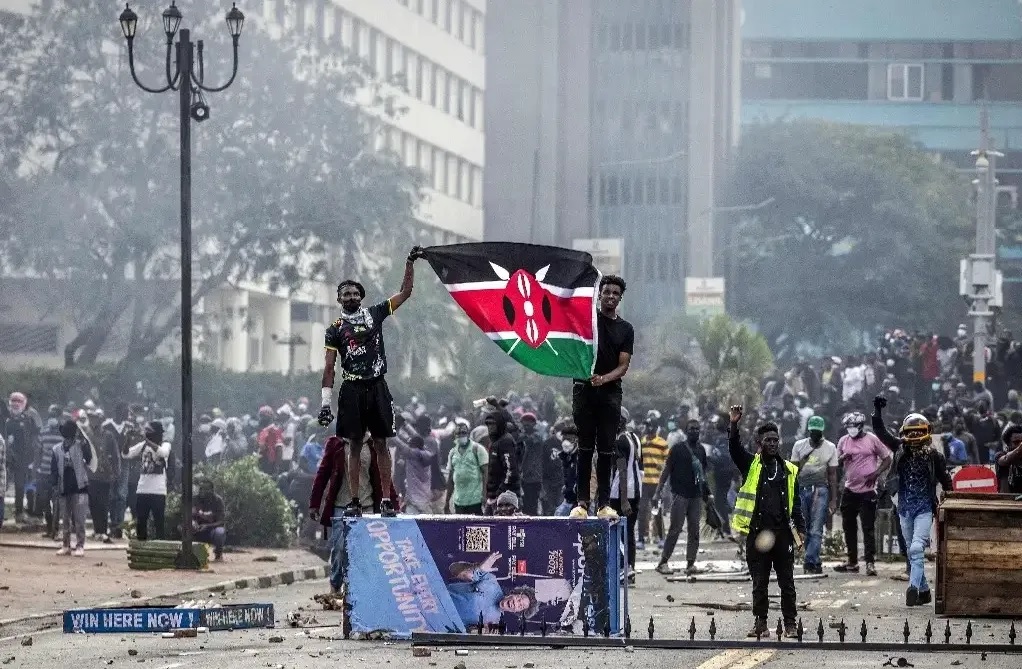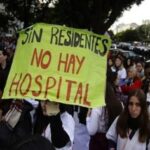
The protests that took place on Tuesday in Nairobi, the capital of Kenya, and in several other major cities succeeded in overturning the hated austerity law that had been demanded by the IMF and that the deputies had approved by a majority in Congress.
After a day that included the occupation and partial burning of Parliament, and a brutal repression that left at least 22 protesters dead at the hands of the Police, the president of Kenya ruled out enacting the law that increased taxes on food and other basic supplies.
The President of Kenya, William Ruto, issued a speech this Wednesday where he reported that he will not enact the Finance Law 2024, which stipulated the increase in taxes and was required by the IMF to guarantee a fiscal adjustment that would raise $2.7 billion. The objective of the International Monetary Fund was for Kenya to reduce the budget deficit to obtain income that would allow it to continue paying the external debt, the interest of which already consumes 37% of the country’s annual income.
This unleashed anger, especially among the young people who, through the social networks TikTok and President Ruto resigns. The deputies rushed to vote on the adjustment law and quickly fled before the protesters occupied part of Parliament and set fire to some of the rooms.
The brutal repression unleashed by the Government left at least 22 dead, hundreds injured and more than 300 arrested (including those from previous days).
It was in this context that Ruto announced that he would not enact the law. However, he insisted on defending his economic policy and called for a “national dialogue” to discuss “cuts” that would allow funding in the areas of health and education, among others.
It is the same economic policy and the same demand from the IMF to cut expenses that is already generating protests and growing unrest among the youth who not only rejected this law but also the increase in the cost of living and the growing conditions of job insecurity that They increasingly require them to work more to earn less.
The president continues to insist on making cuts to, as he says, help the most vulnerable sectors, however he does not question the true drain that impoverishes the country, which is the payment of debt interest to the IMF.
New mobilizations
This Tuesday’s massacre generated immediate outrage. This is the largest number of protesters killed by police in a single day of protests.
“They can’t kill us all,” is the message that began to go viral at night on the various social networks, while the call for new protests for Thursday the 27th began to circulate.
“We meet on Thursday”, along with the hashtag “rejection of the 2024 finance law” are part of the messages that thousands share on social networks.
At the same time the government treated the protesters as “criminals” and said it would take a hard line against “violence and anarchy.” That is, the criminalization and repression of the protest seeking to prevent it from spreading and becoming widespread. But Ruto’s policy suffered another setback when the Nairobi High Court stopped the deployment of the Army on the streets, which the president had ordered.
The first setback came on Tuesday with the thousands of young people who took to the streets and showed that the adjustment policies and the demands of the IMF can be defeated, which imply the impoverishment of millions of people not only in Kenya, but around the world. .
Source: www.laizquierdadiario.com

